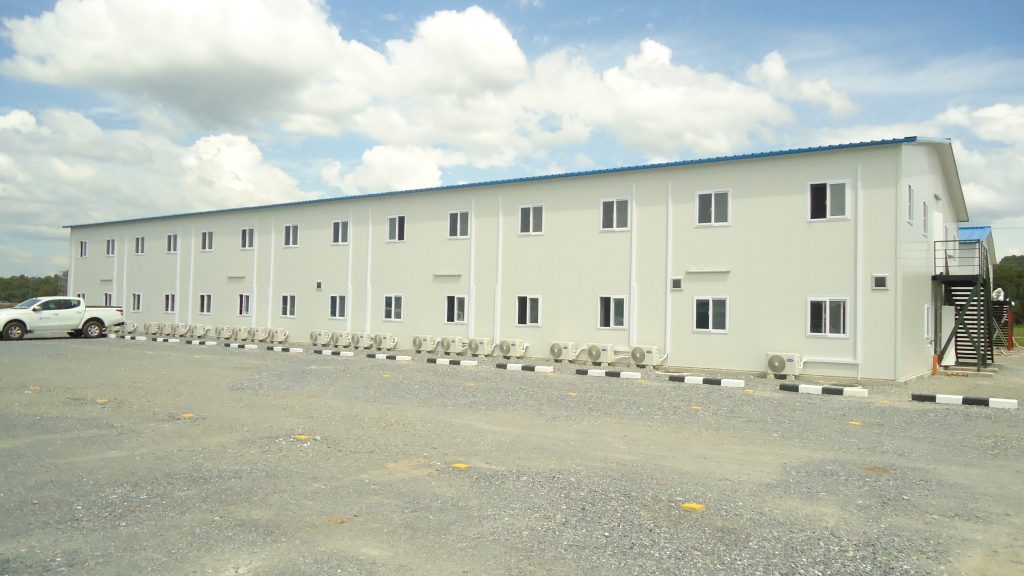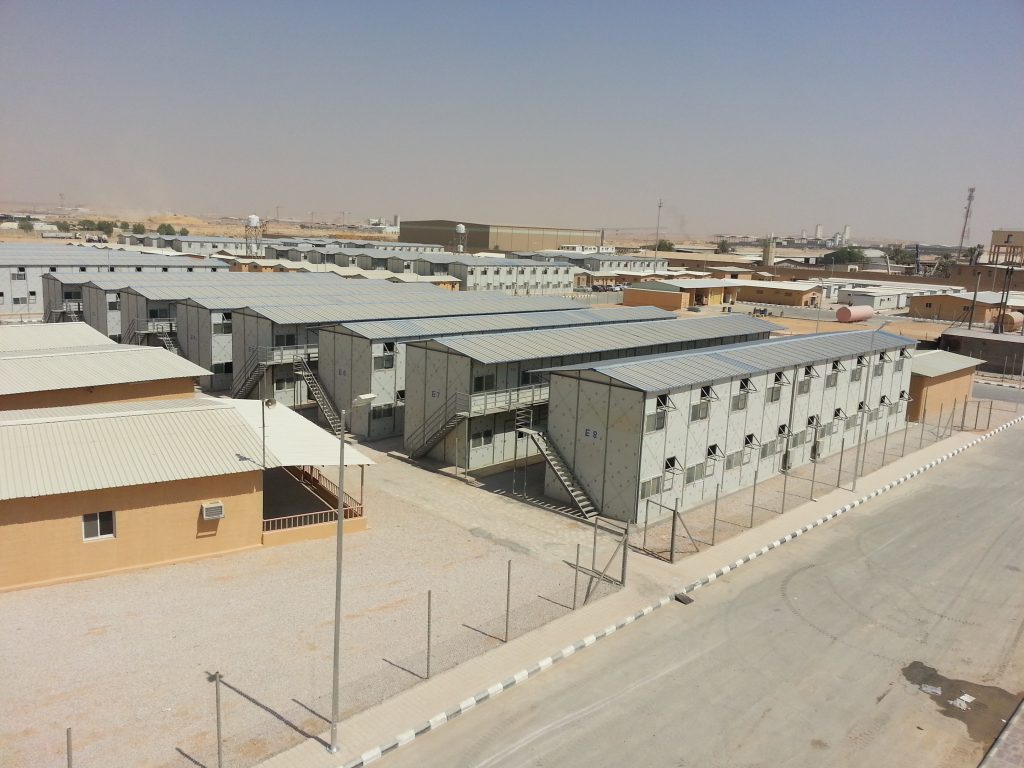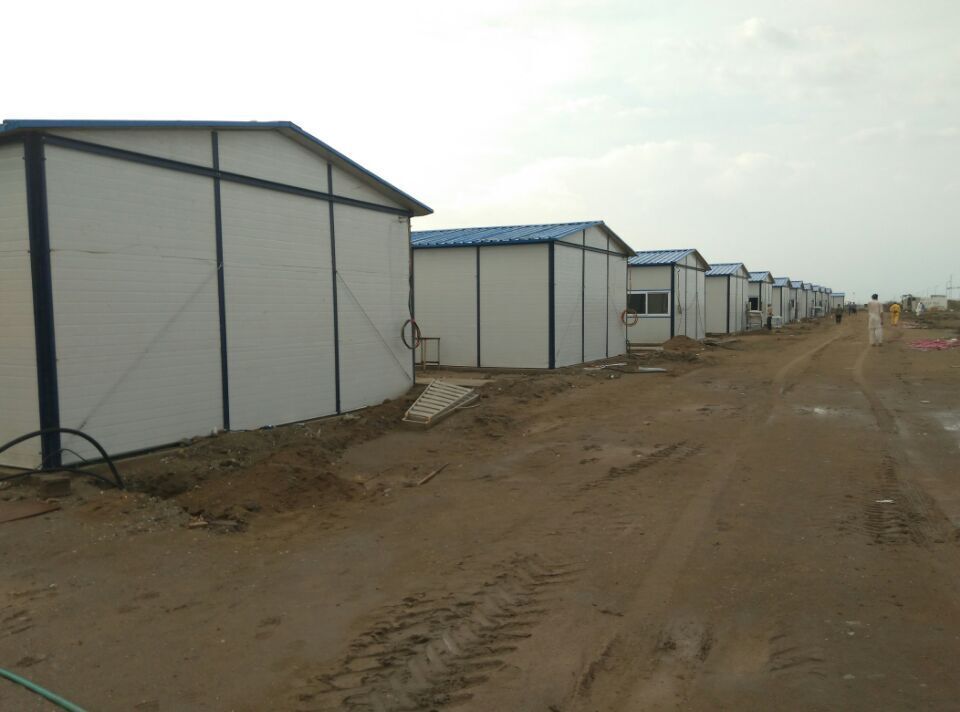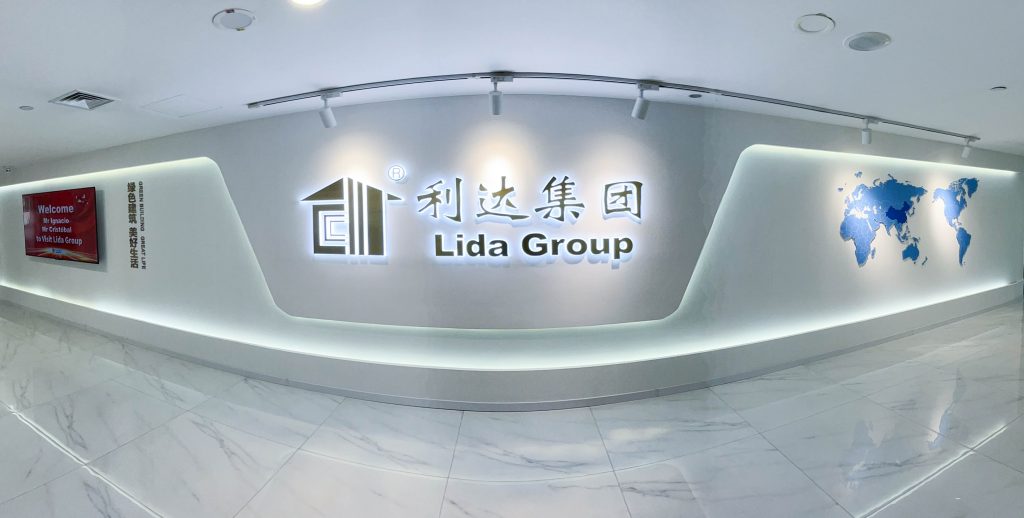In an era of increasing global uncertainty and the growing frequency of natural disasters, humanitarian crises, and other emergency situations, the need for affordable, durable, and rapidly deployable workforce housing solutions that can provide secure, comfortable, and adaptable living spaces for mobile employee populations in crisis-affected regions has emerged as a critical priority for construction companies, energy firms, aid organizations, and other entities operating in the world’s most challenging environments. As these organizations confront the unique logistical and operational challenges posed by the deployment of temporary labor camps in the wake of catastrophic events, ensuring the timely delivery of prefabricated building technologies that can effectively withstand the impacts of extreme weather, seismic activity, and other environmental threats has become an increasingly pressing challenge. Recognizing these evolving requirements, Lida Group, a leading innovator in the modular construction industry, has leveraged its expertise in specialized prefabricated sandwich panel technologies and high-performance building systems to develop a pioneering suite of disaster-resilient modular labor camp solutions that are transforming the provision of secure and sustainable workforce housing in crisis zones worldwide.
“Our mission is to revolutionize the disaster-resilient temporary workforce housing landscape by providing construction companies, energy firms, aid organizations, and other entities around the world with access to high-performance, yet adaptable, prefabricated living spaces that can be easily deployed, customized, and integrated to meet the unique needs of diverse crisis-affected environments and operational contexts,” explains the head of Lida Group’s steel construction division. “By strategically integrating the inherent strength, thermal efficiency, and fire-resistance of our state-of-the-art prefabricated sandwich panel systems with a steadfast commitment to rapid deployment, cost-effectiveness, and long-term environmental responsibility, we’ve been able to craft a pioneering portfolio of disaster-resilient modular labor camp solutions that are transforming the standards of secure and sustainable workforce housing in crisis zones around the globe, delivering unprecedented levels of performance, value, and operational responsiveness to our clients, regardless of their specific requirements or the severity of the challenges they face.”
At the core of Lida Group’s transformative modular building offerings lies the strategic deployment of specialized prefabricated sandwich panel technologies, a revolutionary construction approach that has emerged as a cornerstone of the high-performance and cost-effective prefabricated building movement. By leveraging the inherent structural strength, thermal efficiency, and design flexibility of premium-grade sandwich panel assemblies, the company is able to craft modular structures that are exceptionally durable, energy-efficient, and rapidly deployable, delivering a new standard of functionality and disaster-resilience to a wide range of workforce housing applications in crisis-affected regions around the world.

“Prefabricated sandwich panel systems are the foundation of our approach to disaster-resilient modular labor camps because they allow us to create structures that are remarkably strong, sustainable, and adaptable, regardless of the environmental challenges or operational demands they face,” the head of the steel construction division explains. “By strategically incorporating premium-quality insulation materials, high-performance facing sheets, and specialized structural cores into customized panel assemblies, we’re able to craft prefabricated structures that can be swiftly assembled, effectively withstand the impacts of extreme weather, seismic activity, and other environmental threats, and provide a consistently safe, comfortable, and energy-efficient environment for their occupants, all while delivering exceptional long-term value to our global clients operating in crisis zones.”
One of the key advantages of Lida Group’s prefabricated sandwich panel systems is the ability to precisely customize the composition and configuration of the insulation, facing, and structural components, enabling the firm to tailor the thermal performance, structural integrity, and overall disaster-resilience of the modular labor camp solutions to the unique requirements of each project and geographic region. By leveraging a diverse array of high-performance insulation materials, specialized facing sheets, and advanced structural cores, the company is able to craft modular structures that can effectively mitigate the impacts of severe storms, earthquakes, extreme temperatures, and other environmental challenges, delivering exceptional levels of durability and cost-effectiveness to their clients, regardless of where in the world they may be operating.
“The customizability and disaster-resilience of our prefabricated sandwich panel systems are essential to the success of our modular labor camp solutions in crisis zones as we expand our global reach,” the head of the steel construction division explains. “By carefully selecting and configuring the insulation, facing, and structural components based on the specific performance factors of each project, we’re able to craft modular structures that can effectively withstand the unique environmental threats and operational demands they’ll face, ensuring the safety, comfort, and overall well-being of the occupants while providing exceptional long-term value and operational flexibility to our clients around the world.”
In addition to the strategic integration of high-performance prefabricated sandwich panel systems, Lida Group’s disaster-resilient modular labor camp solutions also place a significant emphasis on the incorporation of advanced building technologies and specialized architectural features, which not only contribute to the overall energy efficiency, user-friendliness, and operational resilience of the structures but also enhance their ability to effectively support the unique needs and challenges of workforce housing applications in crisis-affected regions.

“The integration of advanced building systems and specialized architectural features is critical to the overall success of our disaster-resilient modular labor camp solutions as we expand our global footprint into crisis zones,” the head of the steel construction division explains. “By strategically incorporating state-of-the-art HVAC systems, smart monitoring and control technologies, and customizable interior layouts into the design of our prefabricated sandwich panel modular structures, we’re able to deliver solutions that not only excel in disaster-resilience and sustainability but also provide their occupants with a seamless, comfortable, and highly adaptable living environment, regardless of the specific challenges or operational demands they face.”
One of the key ways that Lida Group has been able to enhance the disaster-resilience and environmental responsibility of its modular labor camp solutions, and drive their global expansion into crisis zones, is through the strategic incorporation of high-performance insulation materials, advanced glazing systems, and specialized air-sealing techniques, seamlessly blending the inherent thermal efficiency and structural integrity of their prefabricated sandwich panel construction with cutting-edge building envelope technologies that deliver exceptional levels of protection, energy savings, and reduced carbon footprints to a diverse array of workforce housing projects around the world.
“The disaster-resilience and environmental sustainability of our modular labor camp solutions are just as essential to their success as the exceptional affordability, rapid deployment, and performance of our prefabricated sandwich panel systems, especially as we expand our global reach into crisis-affected regions,” the head of the steel construction division explains. “By strategically incorporating premium-quality insulation, high-performance windows, and advanced air-sealing measures into the design of our modular structures, we’re able to craft solutions that not only provide a consistently safe, comfortable, and functional environment but also deliver significant long-term reductions in energy consumption and operational costs, contributing to the enhanced livability and ecological responsibility of our prefabricated building offerings for clients operating in the world’s most challenging environments.”
One of the key advantages of Lida Group’s disaster-resilient modular labor camp solutions is the inherent modularity and adaptability of the prefabricated sandwich panel construction, which allows the company to seamlessly customize and reconfigure the structures to meet the unique needs and requirements of a diverse array of clients around the world, regardless of their geographic location, financial resources, or intended use. By leveraging the flexibility of their specialized building components, Lida Group is able to craft modular solutions that can be easily scaled, expanded, or modified to accommodate changing occupancy levels, operational demands, and environmental conditions, ensuring that the structures remain relevant, functional, and adaptable for their global clients, whether they’re located in the heart of a bustling urban center or deep within a remote, crisis-affected region.

“The modularity and adaptability of our prefabricated sandwich panel disaster-resilient modular labor camp solutions are essential to their long-term success and relevance as we expand our global reach into crisis zones, regardless of the specific challenges or operational context they face,” the head of the steel construction division explains. “By strategically designing our building components and construction systems to be highly customizable and reconfigurable, we’re able to craft modular structures that can be easily scaled, expanded, or modified to meet the evolving needs and requirements of our clients around the world, ensuring that the temporary labor camp solutions they receive remain functional, comfortable, and tailored to their unique circumstances, whether they’re located in the heart of a thriving urban area or deep within a remote, disaster-affected setting.”
Integral to the success of Lida Group’s global modular building offerings is the firm’s strategic focus on the integration of advanced computational design workflows and specialized manufacturing processes, designed to maximize disaster-resilience, minimize deployment timelines, and ensure the seamless integration of the structures into a wide range of urban and rural settings across diverse geographic regions.
“Computational design and specialized prefabrication are the foundations of our approach to disaster-resilient modular labor camp development as we expand our global reach because they allow us to deliver solutions that are not only exceptionally strong, sustainable, and user-friendly but also remarkably cost-efficient and rapidly deployable, regardless of their geographic location or the severity of the crisis they face,” the head of the steel construction division explains. “By harnessing the power of advanced digital tools and cutting-edge manufacturing techniques, we’re able to craft modular structures that can be swiftly deployed, seamlessly integrated into a variety of environments around the world, and meticulously crafted to ensure the safety, comfort, and overall functionality of the occupants, all while providing our global clients with unparalleled value and operational responsiveness, regardless of their financial resources or the unique challenges they’re confronting.”
One of the key ways that Lida Group has been able to enhance the renewable energy integration and overall sustainability of its disaster-resilient modular labor camp solutions, and drive their global expansion into crisis zones, is through the strategic incorporation of cutting-edge solar photovoltaic systems, geothermal heat pumps, and other advanced renewable power generation technologies, enabling the firm to deliver modular solutions that can operate independently of the traditional electricity grid and contribute to the reduction of greenhouse gas emissions and overall environmental impact of their clients’ workforce housing initiatives.
“The integration of renewable energy systems is a critical component of our disaster-resilient modular labor camp offerings as we expand our global reach into crisis-affected regions because it allows us to provide our clients with living spaces that are not only exceptionally energy-efficient and resilient but also self-sufficient and environmentally responsible,” the head of the steel construction division explains. “By strategically incorporating state-of-the-art solar panels, geothermal heat pumps, or other advanced renewable power generation technologies into the design of our prefabricated sandwich panel modular structures, we’re able to craft solutions that can generate their own clean, sustainable electricity, reducing the reliance on fossil fuels and contributing to the overall environmental stewardship of the communities and populations we serve around the world, even in the most challenging crisis-affected environments.”

As the global demand for safe, durable, energy-efficient, and cost-effective prefabricated construction solutions continues to grow in tandem with the increasing frequency and severity of natural disasters, humanitarian crises, and other emergency situations, the role of Lida Group’s innovative prefabricated sandwich panel disaster-resilient modular labor camp solutions has become increasingly critical in supporting the operational efficiency, safety, and long-term ecological resilience of construction projects, energy operations, relief efforts, and other critical initiatives operating in crisis-affected regions around the world. By strategically integrating high-performance building systems, premium-quality materials, and specialized renewable energy technologies, the company has been able to craft a portfolio of modular structures that not only excel in disaster-resilience and sustainability but also deliver exceptional levels of affordability, rapid deployment, and operational value – qualities that are essential in addressing the unique challenges of diverse workforce housing applications in the world’s most challenging environments.
Through their tireless dedication to pushing the boundaries of what’s possible in the realm of prefabricated construction and specialized building solutions, the innovators at Lida Group have been able to redefine the very concept of what’s achievable in the provision of secure, comfortable, and environmentally responsible living spaces for a wide range of clients, regardless of their geographic location or the severity of the crisis they face. By seamlessly blending the inherent advantages of prefabricated sandwich panel construction with the speed and flexibility of advanced prefabrication techniques, cutting-edge renewable energy integration, and exceptional disaster-resilience performance, the firm has crafted a new paradigm for disaster-resilient modular labor camp solutions that not only meet the practical requirements of their global clients but also captivate the senses through their exceptional craftsmanship, sophisticated spatial qualities, and unparalleled levels of operational efficiency and long-term environmental stewardship.
As the need for high-quality, affordable, and sustainable prefabricated construction solutions continues to grow in tandem with the increasing global emphasis on disaster preparedness and emergency response, the role of Lida Group’s innovative prefabricated sandwich panel, renewable energy, and specialized manufacturing processes will only become more critical in supporting the long-term viability, responsiveness, and ecological sustainability of workforce housing initiatives, relief efforts, and critical infrastructure projects operating in crisis-affected regions around the world. By consistently pushing the boundaries of what’s possible in the realm of modular construction and specialized building technologies, the company is not only transforming the built environments of its clients but also contributing to the overall resilience, well-being, and environmental stewardship of the communities and populations it serves, regardless of their geographic location or the severity of the challenges they face.

Related news
-
Lida Group’s Prefab House Technology Wins Award for Excellence in Modular Temporary Labor Camp Construction
2025-04-21 17:41:47
-
Eco-Friendly Innovation: Lida Group’s Sandwich Panel Homes Redefine Energy Efficiency in Modular Labor Camps
2025-04-21 16:05:14
-
Global Expansion: Lida Group’s Modular Temporary Labor Camps Utilize Prefab Sandwich Panel Homes for Scalable Solutions
2025-04-21 15:45:38
contact us
- Tel: +86-532-88966982
- Whatsapp: +86-13793209022
- E-mail: sales@lidajituan.com


